The Way We Were: Harry Frisch
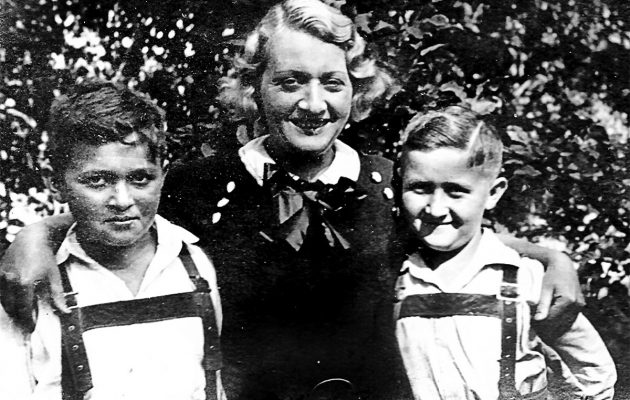
At age 96, Harry Frisch rides five days a week from his San Jose home to his office at Beaver Street Fisheries, where he climbs two flights of stairs at least twice a day and maintains a busy schedule of conference calls, luncheons and meetings. He jokes that he plans to take a day off on his 100th birthday – July 5, 2023.
Harry and his brother, Fred, founded Beaver Street Fisheries in 1955. It has since expanded from a small fish market on West Beaver Street in Jacksonville to an internationally acclaimed company with several brand names, including Sea Best, a brand carried by Walmart’s across the nation. When adding Tropic Seafood in the Bahamas, with brands Island Prince and Island Queen, Beaver Street is now one of the world’s largest lobster processing plants in the world.
Born into a prosperous Jewish family in Vienna, Austria, the Frisch brothers narrowly escaped the Nazi’s in 1938 when Hitler claimed Vienna for Germany. “March 13, 1938 was the day my childhood ended,” says Frisch, remembering the morning following Hitler’s takeover of Vienna. “When I entered my school, nearly all the teachers were wearing Nazi uniforms. That was my last day of school.”
Harry and members of his family fled their former life of privilege in Vienna to seek temporary refuge in Czechoslovakia. There, the Frisch brothers, ages 15 and 16, boarded a transport down the Danube River to the Black Sea, where they joined 800 other illegal refugees on a small Greek Coal Ship, Agios Nicolaos, for a three-day trip to Palestine that was destined to be remembered as “The Voyage of the Damned.” Upon entering Palestinian waters, the ship was machine-gunned by a British patrol boat, resulting in death and injury. Escaping back out to sea, the Agios Nicolaos made it to the Port of Kea, a small Greek Island, but no Jews were allowed to come ashore. For nearly four months, the passengers languished just outside the Port of Kea, nearly starving to death until a small wooden fishing boat was hired to tow the ship to just outside the Port of Haifa. When hundreds of ravenous, filthy, terrified passengers piled aboard the fishing trawler, it began breaking apart under the weight, and as it sank, Harry, his brother, and other passengers jumped into the murky waters and finally made it ashore.
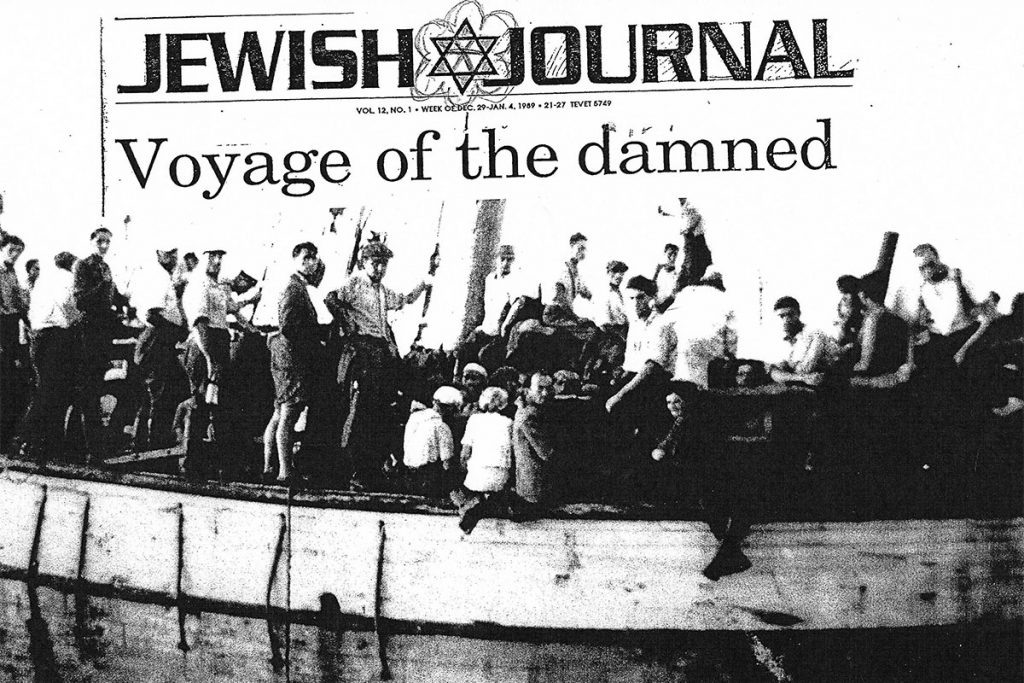
Harry and Fred settled in the village of Petah Tikva near Jerusalem and Harry earned his living as an auto mechanic. There, he met and married Lilo Senkpiel, a nurse who had escaped to Palestine from her village in Kurtwitz, Germany. Harry and Lilo had two sons, Ben and Karl, when they came to the United States in 1953. Brother Fred had come earlier to join their mother and step-father, Nellie and Sigmund Rappaport, who had purchased the small fish market on West Beaver Street in Jacksonville. It was when their step-father died in 1955 that the brothers united to help their mother and established Beaver Street Fisheries. While both brothers had vowed to one day be affluent again, it would take many years of hard work and determination to achieve that goal.
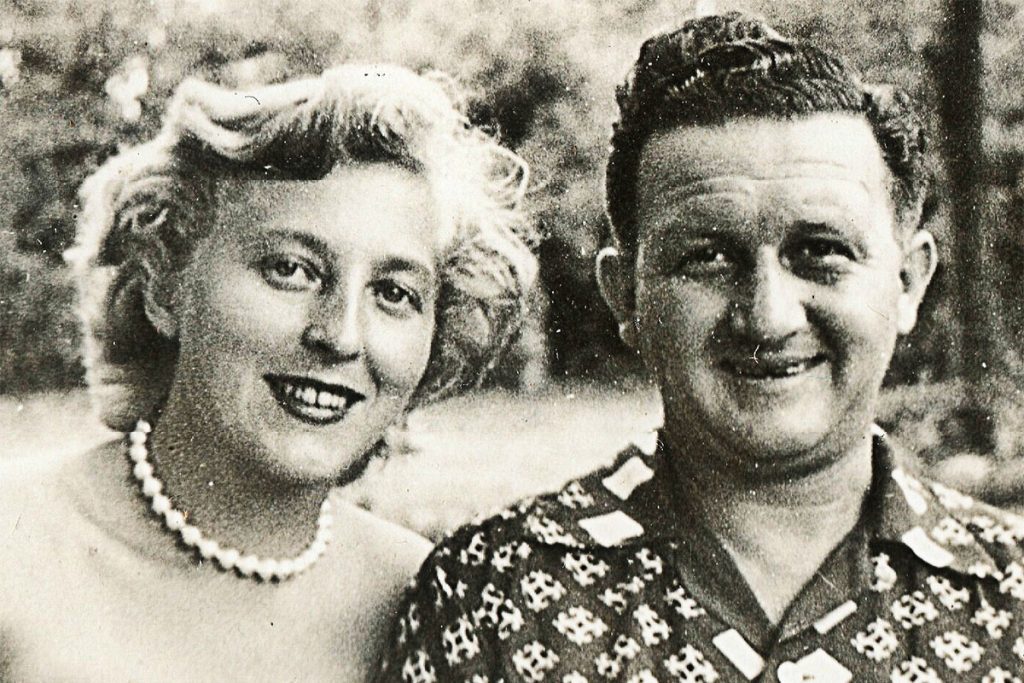
At Beaver Street Fisheries, everyone in the Frisch family worked every day. Lilo came in and worked with Nellie in the fish market, and after Nellie passed away, Lilo Frisch became known as “The Fish Lady.” At 5 a.m. daily, Harry drove the truck to New Berlin and Mayport to buy fish and shrimp for local restaurants. In the meantime, Fred relentlessly called customers and potential customers. Harry recalls just one example of Fred’s determination. “Every day, he called the chef at the Ponte Vedra Inn and every day, he was told never to call again. There was no caller I.D. back then, so the chef had to answer. Fred told him he would call him every day for the rest of his life. One day, the Ponte Vedra Inn called, needing an order in one hour. They became our best account. Persistence works. Never give up.”
Eventually, Beaver Street Fisheries bought fish all the way down state and continued to expand. “Sunday was the time to fix and repair our trucks,” recalls Harry. “That was where my auto mechanic skills came in. We didn’t have any new trucks, but I knew how to fix the old ones. We never had a 40-hour week here – our values were different at Beaver Street. It was important that we get the most out of our time and money, but we were always fair. Everybody knew that.” Those basic family values remain at Beaver Street Fisheries, where Ben and his sons, Mark, Adam and Stephen, now run the business. Karl Frisch retired several years ago.
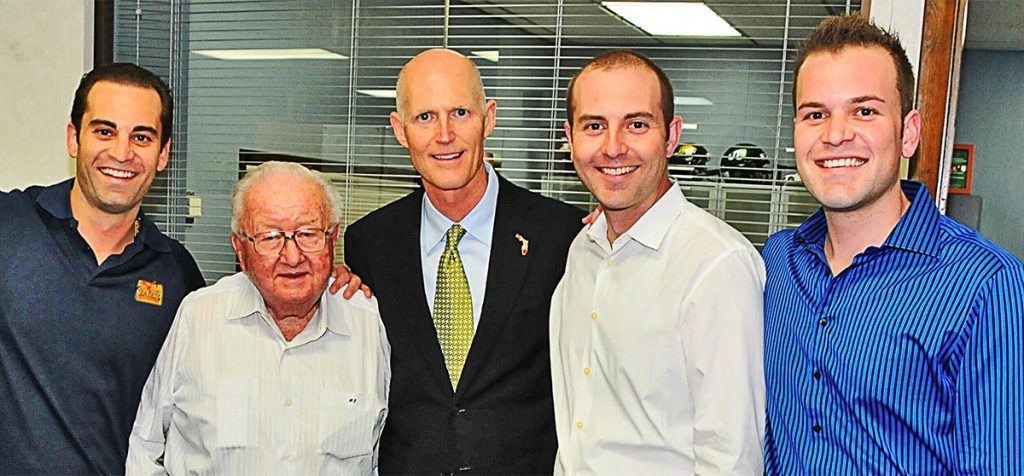
The patriarch of the company, and the man who is still visibly present there on a daily basis, Harry Frisch was once asked to speak to a class of entrepreneurs at Jacksonville University. He sat down at his kitchen table and wrote a list of Points of Good Business Practices. Among those are: Be punctual; Treat employees with respect; Don’t lie, steal or cheat; Live humble (not above your means); Don’t criticize your competitors; Every customer is your sweetheart; Pay your bills on time; Don’t make commitments you can’t keep; Your place must be clean, neat and pleasant; Give back.
“God has been so good to me that I do all I can do to give back,” said Frisch, who has become one of Jacksonville’s most generous philanthropists, having earned a place in the First Coast Business Hall of Fame, a OneJax Humanitarian Award, and has been recipient of many other awards from organizations such as Junior Achievement, the Jacksonville Jewish Federation, Big Brothers and Big Sisters, and, most recently, READ USA, which gives three free books to children in Title One Elementary Schools throughout Duval County. He has been instrumental in saving Jacksonville’s River Taxi and the Alhambra Dinner Theatre, and the Frisch name graces a café at Florida Community College Jacksonville and a building at Jacksonville University, among many other places throughout the city.
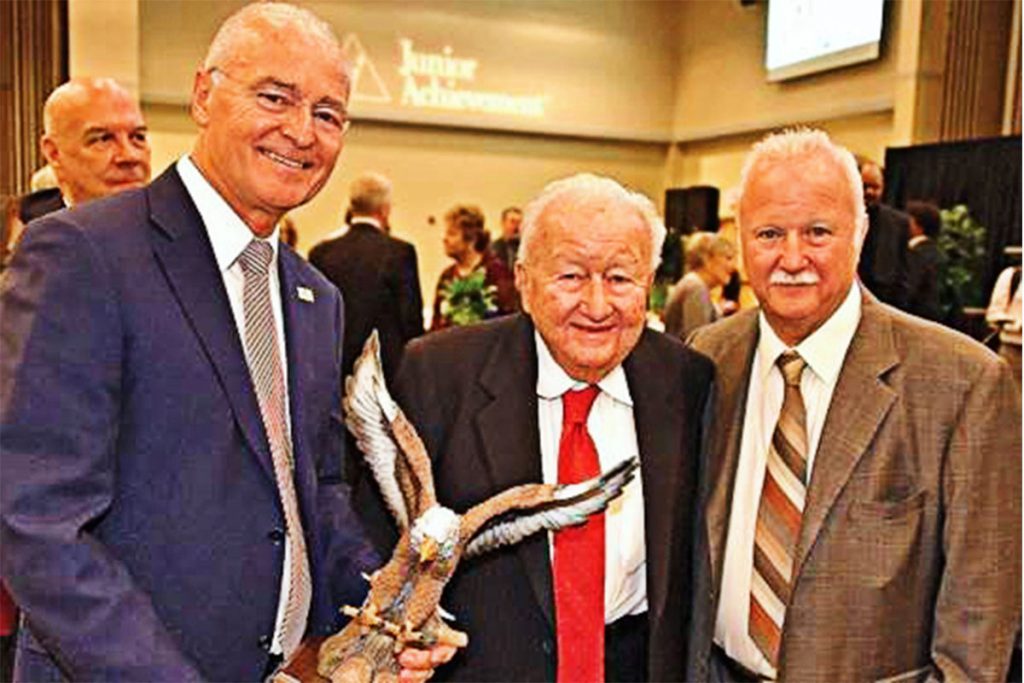
Lilo Frisch passed away in 2016 and the Frisch Family Holocaust Memorial Gallery was established at the Jewish Family and Community Services headquarters in her honor in 2017, and also as a tribute to the few Frisch family members who escaped the Holocaust and a memorial to those who did not.
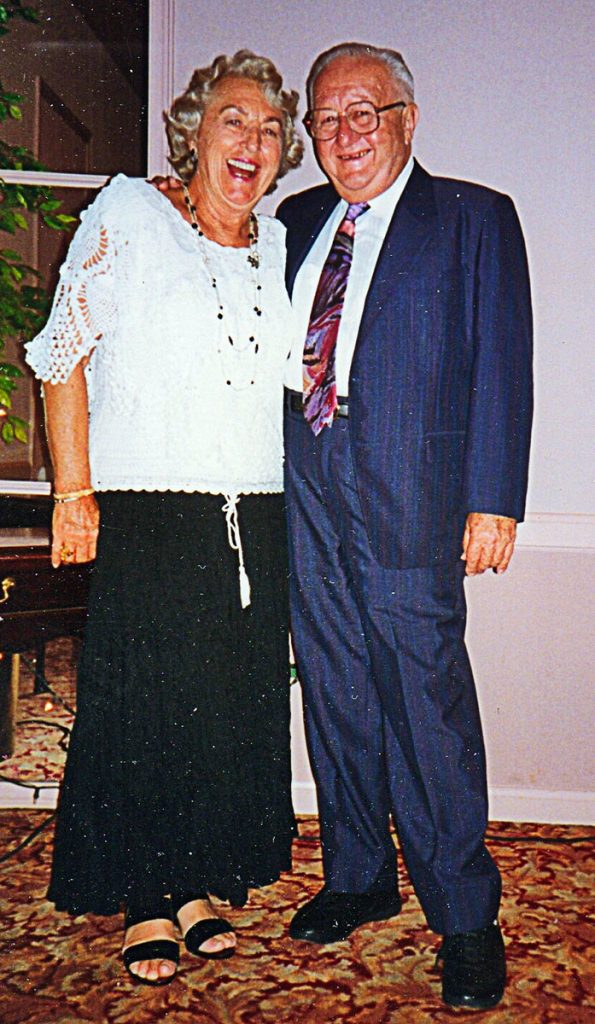
As one of Jacksonville’s most revered businessmen and philanthropists, Harry Frisch can certainly rest on his laurels, but he is still vigorously active at age 96 and eager to continue making a positive difference in the world. Recently, Frisch has expressed great concern for the plight of fatherless children in today’s society. Having researched the disturbing statistics on fatherless children (90% of all homeless and runaway youths and 71% of high school dropouts are fatherless), Frisch is determined to address the problem by partnering with local law enforcement and several already established organizations such as The National Fatherhood Initiative, All Pro Dads and others, as well as encouraging adherence to the Ten Commandments. Frisch’s new initiative, which he calls RESPECT, is based on the Ten Commandments. “We must respect God’s commandments,” he says. “They are not requests, they are commands.”
In his biography, USE YOUR HEAD, Lessons of a Lifetime, Harry Frisch talks of his deep love for God, family and the United States of America, and his hope that others will acknowledge the Biblical wisdom that has been handed down through the centuries. “In the Bible, the definition of an orphan is a fatherless child,” he notes. “With the privilege of becoming parents comes the responsibility to care for our children. When we neglect to care for our children, all of us suffer the consequences.”
Susan D. Brandenburg
Resident Community News




 (2 votes, average: 4.50 out of 5)
(2 votes, average: 4.50 out of 5)

